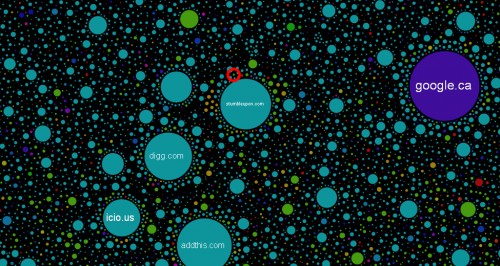Following up from news a couple of weeks ago about Facebook manipulating its users, this week news abounds regarding a dating agency that has been conducting some experiments on its users.
The New York Times reports that the online dating agency OK Cupid has been manipulating the data it gives to its clients, to find out how compatibility and looks effect the dating process. The company conducted 3 different experiments, in one it hid profile pictures, in another, it hid profile text to see how it affected personality ratings, and in a third, it told some hopeful daters that they were a better or worse potential match with someone than the company’s software actually determined.
So as we might imagine they came up with a series of findings, that we could loosely interpret as the following:
1. If you are told that the person is more compatible you are more likely to contact them.
2. Users are likely to equate “looks” with “personality,” even in profiles that featured attractive photos and little if any substantive profile information
3. When the site obscured all profile photos one day, users engaged in more meaningful conversations, exchanged more contact details and responded to first messages more often. They got to know each other. But when pictures were reintroduced on the site, many of those conversations stopped cold.
Well as far as I can see number 1 is pretty self evident. If you send me a note saying that a person is not compatible then I probably won’t bother them with my personal issues., 2 is quite interesting, if I like the looks of someone I am more likely to think that they are an interesting person, may be fun and without doubt the perfect match for me. And also the third is quite obvious, if I don’t know what a person looks like I might imagine their looks and would be more likely to want to get to know them.
The OK Cupid blog will fill you in on the details.
One interesting line from the blog states that “guess what, everybody: if you use the Internet, you’re the subject of hundreds of experiments at any given time, on every site. That’s how websites work”. Wise words, but I wonder if everybody realizes that. And what power they wield!
Now I would like to raise the issue of how someone can design an algorithm to measure my compatibility with another person. What will make us more compatible? Height? Interests? Worldview (and if so how can you put that into numbers)?
There is an interesting book by Hubert Dreyfus called “What Computers Can’t Do”, and in it he argues that there are some areas and situations that cannot fully function. A computer program is based on expertise, on experience that can be categorized. If there are subject matters that are impossible to completely formalise, then they are impossible to formalize in computer programs (such as the one they use to find my perfect partner if they exist).
As a human I think we make decisions based upon generalizations of a situation. Characteristics are judged based upon experiences, I once knew someone with those characteristics and they were great, or stubborn, or nasty, etc. Research suggests that we play games such as chess in this way. We do not think about a long series of possible moves in the way a computer plays, but we see a situation, it reminds us of another situation that we have confronted in the past, and we act according to our experience of action in similar situations.
I am sure some readers have experience in this field, and I would be very happy to get some comments and expand my understanding.




